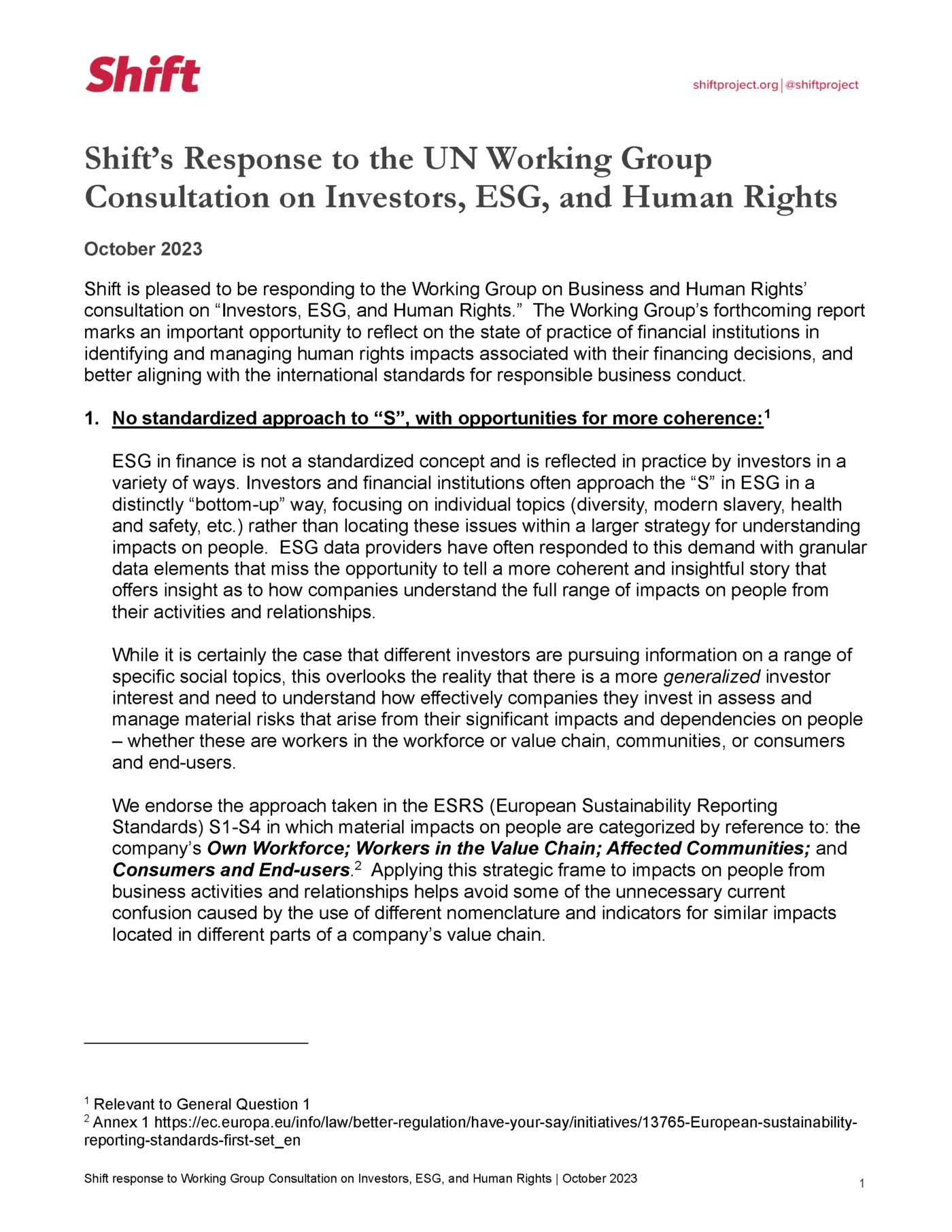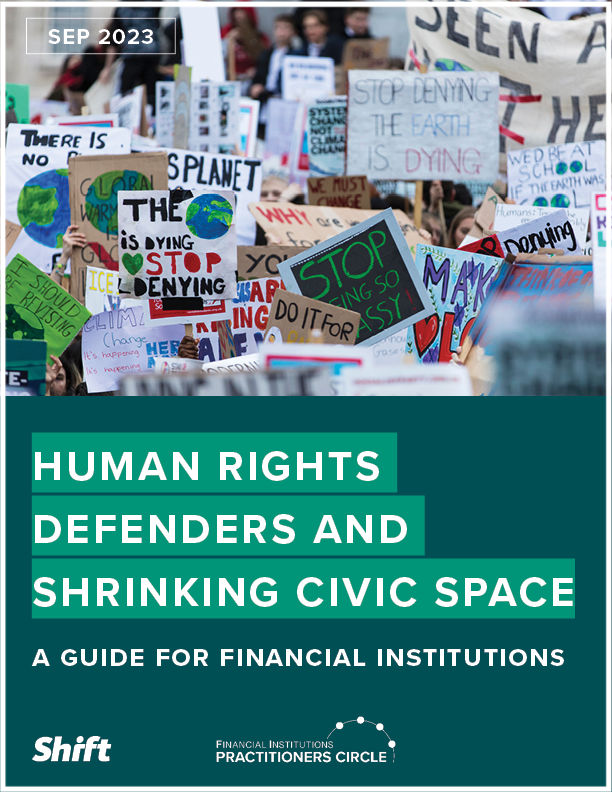In 2016 the International Bar Association issued guidance for business lawyers on the Guiding Principles. Jump to the guidance.
On March 25, 2014, the Business and Human Rights Advisory Group of the Law Society of England and Wales – a cross-functional group of leading legal practitioners in the UK – released its report on the implications for lawyers of the UN Guiding Principles on Business and Human Rights. Prominently, the Report urges the Law Society to take the position that law firms have a responsibility to respect human rights in the advice that they give to clients as providers of legal services, as well as in their own operations. The Report is a significant contribution to a wider discussion on the role of the legal profession in putting the UN Guiding Principles into practice, in which Shift has been closely involved.
The Advisory Group’s report outlines the business case for law firms to meet their responsibility to respect, based on:
- The increasing reflection and incorporation of the Guiding Principles in law, regulation, contracts and dispute resolution processes;
- The reflection of the Guiding Principles in government policy, such as the UK National Action Plan;
- The rapidly changing contours of business legal liability for human rights harms;
- The development of business and human rights practices in law firms in the UK and abroad;
- The need for firms to demonstrate their respect for human rights in order to attract and retain the best talent; and
- The increasing demand by companies for advice from their external lawyers on business and human rights issues.
The Report recommends that the Law Society consider, and develop practical advice, guidance and training on, key issues that must be addressed in the implementation of the Guiding Principles by the legal profession, including: human rights due diligence; access to legal advice; retainer agreements; client relationships; the exercise of leverage as defined in the Guiding Principles; the need to act in the client’s best interests; and confidentiality.
Importantly, it recommends that the regulatory scheme for solicitors – ie, the rules of professional responsibility – should not pose barriers to implementation of the Guiding Principles within the profession.
The Report focuses on what law firms should do align themselves with the second pillar of the Guiding Principles – the corporate responsibility to respect human rights. The report leaves the implications of the third pillar – the need for greater access to remedy – for further consideration and development.
Finally, the Report recommends that the Law Society:
- Encourage law firms to develop policies and procedures to implement the Guiding Principles;
- Incorporate specific human rights guidance into its existing guidance and policies to ensure consistency and minimize additional compliance burdens;
- Engage in developing and sharing best practices;
- Incorporate business and human rights training into continuing professional development programs;
- Develop a program of awareness-raising activities; and
- Implement all the Report’s recommendations by the end of 2014.
The Report follows the American Bar Association’s endorsement of the Guiding Principles in 2012, and a report by the European Council of Bars and Law Societies on the relevance of the Guiding Principles for the legal profession.
The Report will feed into, and provide practical guidance for, a closely related effort at the international level – namely, the recently formed International Bar Association Working Group on Business and Human Rights, which is exploring the implications of the Guiding Principles for the global legal profession. Shift is leading that effort, together with the IBA, and chairing the Working Group. The IBA Working Group includes representatives of the bars of Brazil, Japan, Namibia, Spain, Turkey, the UK and the US. Bob Heslett, Chair of the Business and Human Rights Advisory Group of the Law Society of England and Wales, is also a member of the IBA Working Group.
In 2013, Shift, through its Legal Outreach Initiative, provided training to the UK Law Society and its members on the implications of the UN Guiding Principles for the legal profession.



